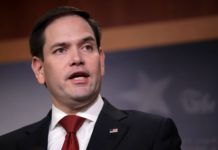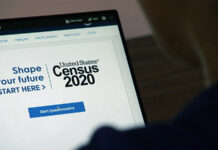![]()
The basis of a democratic society is trust. Trust is what allows our soldiers to give their all in far away battlefields with the sure knowledge that their families will be taken care of. Trust is what allows parents to leave their children in the care of teachers who they know will not inflict intellectual or physical harm. Trust is what allows all American citizens to vote with the belief that those they elect will actually represent and defend them. Most pertinent to the topic of this article, trust in public health officials is what led the majority of Americans to follow strict protocols for months on end, knowing that despite the sacrifices they were making, it was all for the greater good.
Yet, since those early months of the pandemic, public health officials, especially those at the university level, have seemingly forgotten that the trust of citizens is the foundation of their power. Forcible implementation of policies may get people to adhere to them in the presence of those charged with enforcement, but as has been seen time and time again in totalitarian regimes, people will publicly support regimes while privately disparaging and disobeying them. When public health officials feel compelled to hire people for the task of enforcement, it is a clear sign that they have lost the trust of the people. The early months of the COVID-19 pandemic demonstrated that most Americans trusted what was being said; they wore masks in every public venue, accepted that indoor dining was not permitted, and adapted to work from home. There was no need for “Masks Required Indoors” signs or enforcement of health guidelines because everyone was cognizant of the fact that whatever was being done was for the greater good. Those who did breach health guidelines, such as college students throwing “COVID parties” in the South and people refusing to wear masks were (rightfully) lambasted on social media. Even those who posted a picture of themselves with friends not wearing masks could expect a direct message or two about their reckless and insensitive behavior.
However, we no longer find ourselves in the first year of the COVID-19 pandemic. The days where not wearing a mask outside could be considered an egregious offense are long gone. Those who are vaccinated and boosted face little to no risk of hospitalization. This truth, complemented with the fact that COVID-19 case numbers remain low, hospitalizations even lower, and deaths comparable to the flu, has led all 50 states, plus D.C., to remove indoor mask mandates. It is overwhelmingly clear to the vast majority of Americans that masks are no longer required to curtail the pandemic.
Meanwhile, public health officials—specifically those at Georgetown University—have disregarded this widely held, scientifically defended belief, and reinstated mask mandates. Most students will comply with the mandates in university buildings, but few if any will wear a mask at private events, such as parties. This adherence to policy only when it is being directly enforced should be an undeniable signal to Georgetown’s administration that they have lost the trust of its student body; it will cement this loss of trust if policies that lack coherence and logical basis persist.
What is the ‘hidden danger’ of implementing public health guidelines that lose the trust of the people? The danger is that when another pandemic develops, as one inevitably will in the next decades, people will no longer be inclined to listen to public health officials. Even with the best interest of the people at heart, their policies will be indistinguishable from the nonsensical ones advocated for in 2022. Americans will follow the guidelines in public as they are doing at the moment, but in the crucial sphere of private life, they will carry on as normal. A serious pandemic cannot be contained without the trust of the people, just as it cannot under an intrusive system of enforcement such as the one that exists in the People’s Republic of China. In the United States, intrusive enforcement will be met with individualistic defiance, making societal trust its only means of effective policy. Therefore, public health officials must immediately stop extending the idea of the pandemic and allow people to return to normalcy. Defeating the COVID-19 pandemic was difficult, but the battle is now over; if public health officials continue to implement policies that are no longer necessary, they risk complete impotence when the next pandemic arrives.












